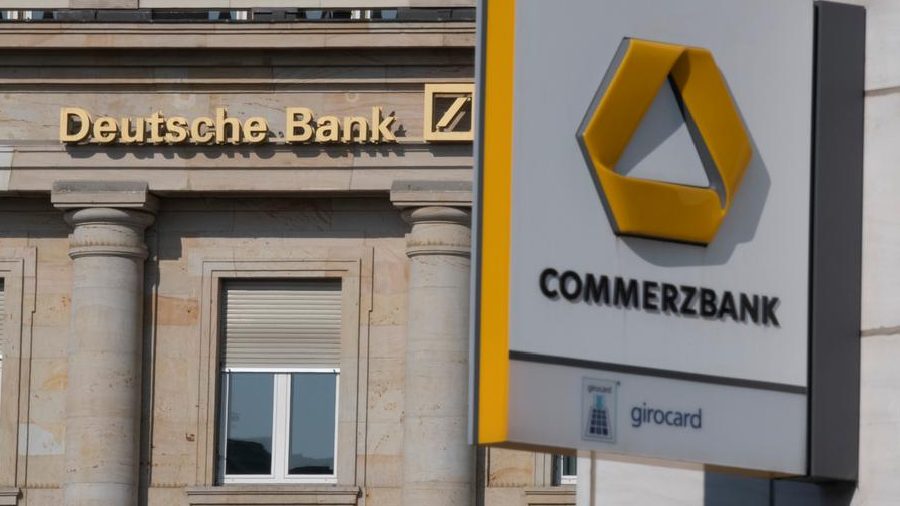Banking shares plummeted in Europe and Asia on Friday as turmoil in the sector and the latest interest rate hikes raised concern about a potential recession.
German giant Deutsche Bank seemed to bear the brunt of the hit, with its shares plunging more than 13% after a significant hike in the cost of insuring its bonds against the risk of default.
In a third day of losses, Deutsche Bank shares shed a fifth of their value for the month, according to S&P Market Intelligence, a data and analytics firm.
What is happening to bank stocks?
Indices in key European financial capitals slumped by more than 2% Friday, with drops reported in Asia earlier in the day.
The past few weeks have seen central banks raise interest rates in an attempt to calm markets in the aftermath of the crash of Silicon Valley Bank (SVB) in the US. They have been employing the mechanism for nearly a year now as a way to combat rising inflation.
Recently, the European Central Bank (ECB) raised interest rates by 0.5%, while the US Federal Reserve revised its rate hike to 0.25% after fears for the banking sector prompted calls for the Fed to tone down its aggressive interest rate policy.
The Fed has signaled that it may consider halting interest hikes altogether. The ECB, however, said it was nowhere near the end of its rate hike scheme, stressing that the fight against inflation is still ongoing.
The most recent banking crisis started when two mid-sized US banks — SVB and Signature Bank — collapsed some two weeks ago, sounding the alarm among investors regarding the sector's overall resilience. The crisis soon spread to Europe, with Switzerland's Credit Suisse bank falling into an emergency acquisition by its main competitor UBS.
Many fear a scenario similar to that which preceded the 2008 financial crisis. Banking and economic officials in the US and Europe have stressed that the banking sector is now more robust than it was 15 years ago.
How is the crisis affecting currencies and oil?
The crisis prompted a rush for the US dollar, a currency that many fall back on when times are tough, pumping it up 0.6% against major peers. The euro, meanwhile, fell 0.9%.
Another safe-haven currency, the Japanese yen, also climbed to a six-week high, up 0.6%.
Brent crude, the global oil benchmark, fell 2.5% to around $73 (€67) per barrel.











